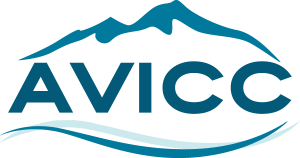Director at Large
Tanille Johnston
About AVICC / Elected Executive / Director at Large Tanille Johnston
My name is Tanille Johnston and I was born and raised in Campbell River. I am also Liǧʷiłdax̌ʷ from the WeWaiKai First Nation. I have been back in my home community now for almost seven years after being in Victoria for a little over a decade, getting an education and working as a Social Worker. I have both my undergraduate degree and Master’s degree in Social Work. I’m passionate about equity, and the social determinants of health and culture. I’ve played soccer most of my life, I love cycling, playing volleyball, hiking and being in nature. I believe that thriving communities are built on collaboration, ingenuity, determination, and healthy relationships amongst business, leadership, and community members and groups. I’m a sister, daughter, granddaughter, friend, wife, and mother. I have a huge appreciation for diversity and that each individual person possesses knowledge and experience that differs from another and that these unique perspectives are vital in establishing safe, supportive, and healthy communities.
My experience in politics is derived from my current first-term position as a Councillor for the City of Campbell River, almost a decade of service on my Nation’s Lands Committee, and previous role with our Community Planning Advisory Committee, as well as during my time at the University of Victoria, where I held seats with the Native Student Union, the School of Social Work’s Equity Advisory Council, the UVIC Student Society Board of Directors, and the University of Victoria’s Senate. I’ve also had the privilege to hold a seat on the Canadian Federation of Students (CFS) Provincial Executive as the Aboriginal Liaison for British Columbia and participate at the within the CFS’s National Aboriginal Caucus.
Some of my key priorities in politics have been, and still are:
- Greatly increase childcare spaces across the board;
- Free and accessible post-secondary education;
- Bring forward rural and remote strategies that are rooted in the diverse and unique needs of their specific geographies and populations;
- Establish better public transit, cycling routes and other alternative methods of transportation;
- Investment in infrastructure that supports the social determinants of health;
- Diverse and affordable housing; low-income, seniors, and students;
- Equitable access to health care; and
- Increased representation and participation of Indigenous persons in local, regional, coastal, provincial and federal decision making.
I am so grateful for the opportunity to work with the other members of the AVICC Executive to make our term outstanding and move forward the initiatives that you, as our membership, have told us mean the most!
The AVICC acknowledges that we are grateful to live, work, and play on the traditional territories of theCoast Salish, Nuu-Chah-Nulth and Kwak-Waka’wakw Peoples

